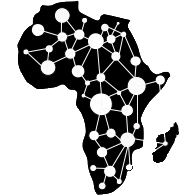Why write a book?
This is day three of the Atomic Human advent calendar and the second of a set-of reflection posts.
One amazing aspect of publishing with a trade publisher is all the support they give in terms of marketing and publicity. What’s the difference between the two? Apparently marketing is promotion you pay for and publicity is promotion that you don’t pay for. Well, at least not in terms of money, but you dedicate a lot for publicity in terms of time. That leads to book tours, podcasts and interviews.
One question you’re often asked is “why did you write this book?”. And my standard answer is “because I wanted to change the conversation.” It’s my standard answer because it’s true, but I often feel it sounds somewhat arrogant. The idea that somehow the conversation is wrong and its up to me to change it. How is the conversation wrong?
The conversations I have most enjoyed over the last 10 years are those with my colleagues working to deploy these technologies on the African continent. My colleagues at Data Science Africa have been sharing how to build and deploying AI on the African continent for most of the last decade.
 The logo of Data Science Africa. See datascienceafrica.org
The logo of Data Science Africa. See datascienceafrica.org
I described their ethos in this article in the Guardian from August 2015. Since that first meeting they have hosted twelve events and built a pan-African network of researchers addressing challenges in health, agriculture, conservation and urban management.
So what’s that got to do with the UK? Well in public dialogues we just completed with ai@cam, I also found a more sensible, grounded conversation. One that reflects the same issues we heard when conducting a similar set of dialogues through the Royal Society in 2016 (conducted in 2016 published in 2017). People want solutions in health, education, security and general wellbeing. They have been asking for them for the best part of a decade and yet we’ve made little progress in these areas. Instead we have made progress in the one area they unequivocally told us they didn’t want progress, creativity. So who’s arrogant now? Those that are looking to change the conversation or those continuing a conversation that is utterly detached from the reality people are facing? The idea that AI presents a technical existential threat as depicted in the Terminator films is of course nonsense. But the idea that it presents a sociotechnical existential threat is not.
Today in the Financial Times, I did my best to distill these challenges and their solutions into a short Op-ed. It explains how, without following the example from Data Science Africa, we face an erosion of our human capital. In the epilogue of the book, I refer to Popper’s Open Society and Its Enemies and the notion of the piecemeal social engineer. I see his book as a defence not only of the open society, but of democratic institutionalism. Digital technologies bring benefits but they also undermine existing institutions and their role in democratic society. My piece in the Financial Times describes a way forward that is inspired by my colleagues in Data Science Africa who have already shown what is possible.